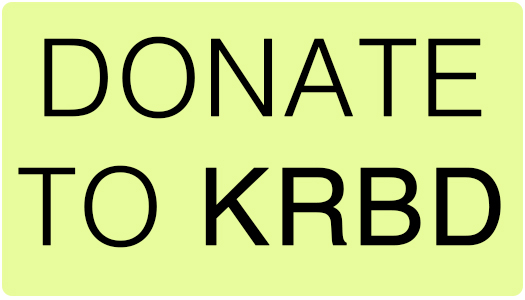
Jason Wilson, right, Central Council of Tlingit and Haida Indian Tribes of Alaska public safety manager, discusses criminal justice reform as legislative aide Jordan Shilling listens during a Native Issues Forum Thursday at Juneau’s Elizabeth Peratrovich Hall. (Photo courtesy CCTHITA)
Some of last year’s changes to Alaska’s criminal code have drawn fire from law enforcement officials, politicians and crime victims. A partial rewrite is underway.
But a Southeast tribal justice leader said sections of Senate Bill 91 are worth keeping.
Jason Wilson is public safety manager for the Central Council of Tlingit and Haida Indian Tribes of Alaska. He manages the tribe’s Village Public Safety Officer program. He’s also a member of the state’s parole board.
At a Thursday forum, he said probation system changes are helping lesser criminals remain functioning members of society.
He referred to a situation where probation terms include no drug or alcohol use. He said breaking that rule used to mean an automatic 15-day lockup.

Sen. John Coghill, left, aide Jordan Shilling, middle and Tlingit-Haida Central Council’s Jason Wilson, discuss criminal justice changes Thursday in Juneau. (Photo by Ed Schoenfeld/CoastAlaska News)
“So this person relapses. That’s a violation and they go to jail. They now lose their home because they’re sitting in jail. They lose their home and they lose their job. So, when they come back out, we’re starting all over,” he said.
Wilson said the new rules still punish offenders with jail time, just not as much. And experts understand relapses are part of the recovery process.
“Now with the justice reform, we’re an automatic three days [in jail] and we’re out. So the offender is reminded these are things that we need to work on, we need to add treatment. They still hopefully have their home and they still hopefully have their job,” he said.
Wilson was one of four panelists addressing criminal justice reform at a Native Issues Forum in Juneau.
Other speakers were Fairbanks and North Pole Senator John Coghill, who’s working on updates to the justice reform legislation; his aide Jordan Shilling and Central Council Second Chance Reentry Program Coordinator Talia Eames.








